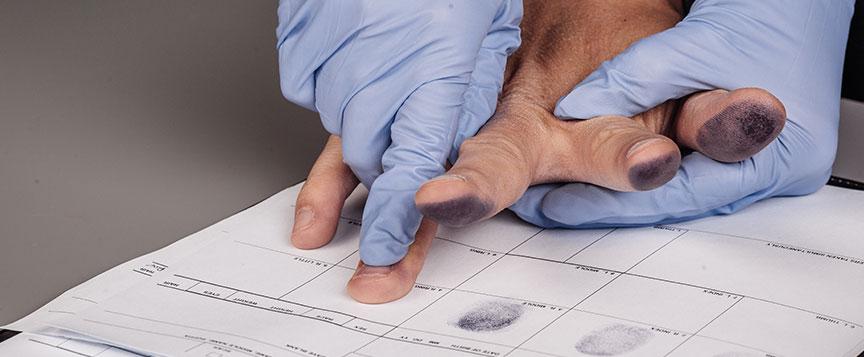DuPage County Expungement Attorney

Lawyer Clearing Criminal Record Expungements and Seals in DuPage County and Cook County
NEWS FLASH! New expungement and sealing laws now allow for many, many more types of arrest records and cases to be expunged or sealed. Call (630) 472-9700 for a free evaluation to determine if your felony or misdemeanor arrest may be cleared from your record. Get legal help now to avoid the pitfalls and common mistakes that will negatively impact your criminal record.
If you have ever been arrested and charged with a crime, your felony or misdemeanor criminal record is part of the public eye which can be viewed by anyone, even if you were never convicted. Employers, family members, and friends all have access to public records, and this information can be easily found online. If you have an arrest on the books, it is available to be seen, even if the case was dismissed, you were placed on court supervision, or a judge or attorney told you that you would not have a criminal conviction on your record.
Many employers perform extensive background checks before hiring. Even if your arrest charges were dropped, the arrest record can be a source of embarrassment for you, leading to loss of employment, the inability to advance in your current position, or difficulty obtaining a new job.
At Kathryn L. Harry & Associates, P.C., we understand the problems that a criminal record can cause in your life, and our team of skilled, experienced attorneys is ready to assist you in the expungement or sealing of criminal records, allowing you to move past the mistakes of your past and achieve success in your life and career.
What Is Expungement?
Expungement is the process whereby the record of your Illinois arrest is destroyed and no longer available for viewing. An expungement is permanent, and an Expungement Order requires the Clerk of the Circuit Court to remove your name from the list of cases it maintains and destroy the entire court file. The order also directs the local policing agency who made the arrest and the Illinois State Police to destroy or return all records in their possession to you, the defendant. Finally, it instructs the Office of the State's Attorney or Village Prosecutor to destroy their files on the matter.
Expungement is available for misdemeanor and felony arrests which did not result in a conviction, and for convictions which were reversed or vacated or for which a person received a pardon from the Governor. Honorably discharged veterans may also be eligible for expungement of convictions in certain circumstances. People convicted of certain offenses, such as drug possession or retail theft, may qualify for expungement if enough time has passed since they successfully completed a sentence of Qualified Probation.
People sentenced to court supervision may be eligible for expungement after a waiting period of two years, or five years if they were charged with Domestic Battery, Criminal Sexual Abuse (if the victim was at least 18 years old), or Operating an Uninsured Motor Vehicle. People who received court supervision for Reckless Driving who were under the age of 25 at the time of the offense and do not have any other convictions for DUI or Reckless Driving are eligible for expungement after their 26th birthday.
What Is Sealing?
For cases that are not eligible to be expunged, there may be another option available called sealing the record. A seal differs from an expungement in that it does not result in the complete and total destruction of your arrest record. Rather, an Order to Seal your record will result in the Court requiring the Clerk of the Circuit Court to impound or hide your record from the general public. Your record will still remain visible to law enforcement agencies, prosecutors, and certain employers, such as fire departments, schools, and healthcare organizations.
Most misdemeanor and felony convictions are eligible for sealing after a waiting period of three years after the completion of your sentence. Convictions for the following charges cannot be sealed:
- DUI
- Reckless Driving (unless you were under the age of 25 at the time of the offense and have received no other DUI or reckless driving convictions)
- Domestic Battery
- Violation of an Order of Protection
- Animal Crimes, including dog fighting or tormenting or abandoning an animal
- Certain Sex Crimes, including sexual offenses committed against a minor and any offense which requires someone to be placed on the Sexual Offender Registry.
Filing a Petition for Expungement or Sealing
While the Clerk of the Circuit Court may provide you with the forms to begin the expungement process, the Clerk cannot provide legal advice, including instructions on how to fill out these forms or telling you whether your case qualifies for an expungement. Failing to properly fill out a petition can result in the denial of your request, so it is important to have qualified legal help.
The expungement and sealing laws are very complicated and confusing to most lawyers, let alone people who have never been to law school. During this process, you should retain an experienced expungement attorney who understands the procedures that must be followed. Our attorneys will review your arrest record, help you determine whether your record is eligible for expungement or sealing, guide you through the confusing process of eligibility, ensure that you have met your legal requirements when preparing documents, and represent you court appearances and hearings. We will also make sure the Court Order to clear your record is complied with by the Illinois State Police, the Clerk of the Circuit Court and all other agencies required to act under the law.
Contact our Oak Brook criminal defense attorneys today at 630-472-9700 to schedule a free consultation and case evaluation. We serve clients in Downers Grove, Hinsdale, Westmont, Burr Ridge, Clarendon Hills, DuPage County and surrounding areas.
 1200 Harger Road, Suite 830, Oak Brook, IL 60523
1200 Harger Road, Suite 830, Oak Brook, IL 60523







